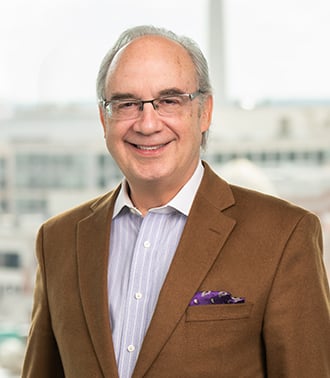Cuba Update: Obama Administration Makes Further Policy Changes
Coinciding with President Obama's historic trip to Cuba and reports of high-profile, US government approved agreements between US corporations and the Cuban government, the administration has made a number of additional changes to the Cuban Assets Control Regulations (CACR) administered by the Office of Foreign Assets Control (OFAC)1 and the Export Administration Regulations (EAR) administered by the Bureau of Industry and Security (BIS) at the Department of Commerce.2 While none of the changes represent more than incremental loosening of the embargo (consistent with similar policy changes that have been implemented since January 2015), they provide significant new opportunities for US persons to transact with Cuban nationals and to travel to Cuba, and for US companies to do business there. The changes also provide for the authorization and unblocking of previously prohibited so-called "U-Turn" transactions involving transfers between third countries involving Cuba that do not originate or terminate in the United States.
Expanded travel license. US persons are now authorized to travel to Cuba, in addition to the previously granted authorizations, to engage in "people to people" educational exchanges which is defined to include any activities intended to "enhance contact with the Cuban people, support civil society in Cuba, or promote the Cuban people's independence from Cuban authorities." This provision is broad and may authorize many types of travel to Cuba that involve contact with Cuban nationals, although there are some requirements, such as having a full-time itinerary that shows "meaningful interaction" between the traveler and Cubans.
Establishing a Presence in Cuba. US entities engaged in certain additional activities now have a clear authorization to establish a business presence in Cuba:
- exporters of goods authorized for the export or re-export to Cuba by the CACR (subject to certain limitations);
- entities providing authorized mail or parcel transmission services;
- entities providing authorized cargo transportation services; and
- providers of authorized travel and carrier services.
Additional US entities have also been authorized to establish a "physical presence" in Cuba, such as a branch, office, joint venture, or agency or other business relationship, to the extent that the entities' activities are authorized by another provision in the CACR, including:
- entities engaging in non-commercial activities under the "Support for the Cuban People" authorization;
- entities engaging in authorized humanitarian projects; and
- private foundations or research or educational institutions engaged in authorized activities in Cuba.
In addition, a companion change was made to the EAR, under which US persons may now export to Cuba items for use in establishing and maintaining the physical presence authorized by the new amendments to the CACR. This includes any items designated EAR99 or only controlled on the Commerce Control List (CCL) for "anti-terrorism" reasons. The result is that a wide swath of ordinary office supplies and equipment may now be brought to Cuba to aid in establishing an authorized office.
Payment of salaries to Cuban nationals in the United States. OFAC has expanded the general license that governs the presence of Cuban nationals (in a "non-immigrant" status) in the United States. This general license now includes express authorization for such persons to receive a "salary or other compensation . . . consistent with the individual's non-immigrant status or non-immigrant travel authorization, provided that the national of Cuba is not subject to any special tax assessments by the Cuban government in connection with the receipt of the salary or other compensation." (Importantly, this also authorizes banks to permit Cuban nationals to open and maintain bank accounts at US financial institutions.) For entities with a presence in the United States, this significantly opens the door to entering into employment relationships with Cuban nationals (on a non-immigrant basis).
Changes for banks and financial institutions. The CACR was substantially amended to permit banks to engage in transactions involving Cuban nationals, particularly expanding the permissibility of such transactions involving third countries. Notably, US banks may now engage in so-called "U-Turn" funds transfers originating and terminating outside of the United States, provided that neither the originator nor beneficiary is a US person. In other words, US banks may now clear US dollar transactions involving non-US persons notwithstanding the Cuban embargo. This provision also provides for the unblocking of funds that were previously blocked because of the prohibition on U-Turn transactions.
US banks are now also permitted to process and give value to US dollar monetary instruments presented for processing in third-country banks that originated from a Cuban financial institution, if the transaction is authorized or exempt from the CACR. For example, US banks can now process such transactions involving authorized US travelers under the CACR or third-country travelers not subject to the CACR at all.
Importation of Cuban-origin Software. Cuban-origin software may now be imported into the United States.
Shipping. Both the EAR and CACR were amended to provide for the temporary sojourn to Cuba of vessels containing US cargo destined for third countries provided that such cargo departs with the vessel at the end of its temporary sojourn to Cuba, does not enter the Cuban economy, and is not transferred to another vessel while in Cuba.
Grants and Awards. The CACR has been amended to provide for educational grants, scholarships, or awards to a Cuban national. For example, Cuban nationals may now receive scholarships to pursue their degree. OFAC has also clarified that an existing authorization for grants and awards includes grants or awards for humanitarian projects in or related to Cuba that are "designed to directly benefit the Cuban people[.]"
Although these and the many other changes to the Cuban embargo that have been implemented by the administration since January 2015 offer a wide array of opportunities for US persons to engage and do business in Cuba, the Cuban embargo remains in full effect. For US persons, only what is expressly authorized or licensed is permitted. Accordingly, it is important to carefully assess any proposed transaction before investing resources in activities in or involving Cuba that may not be permissible.




